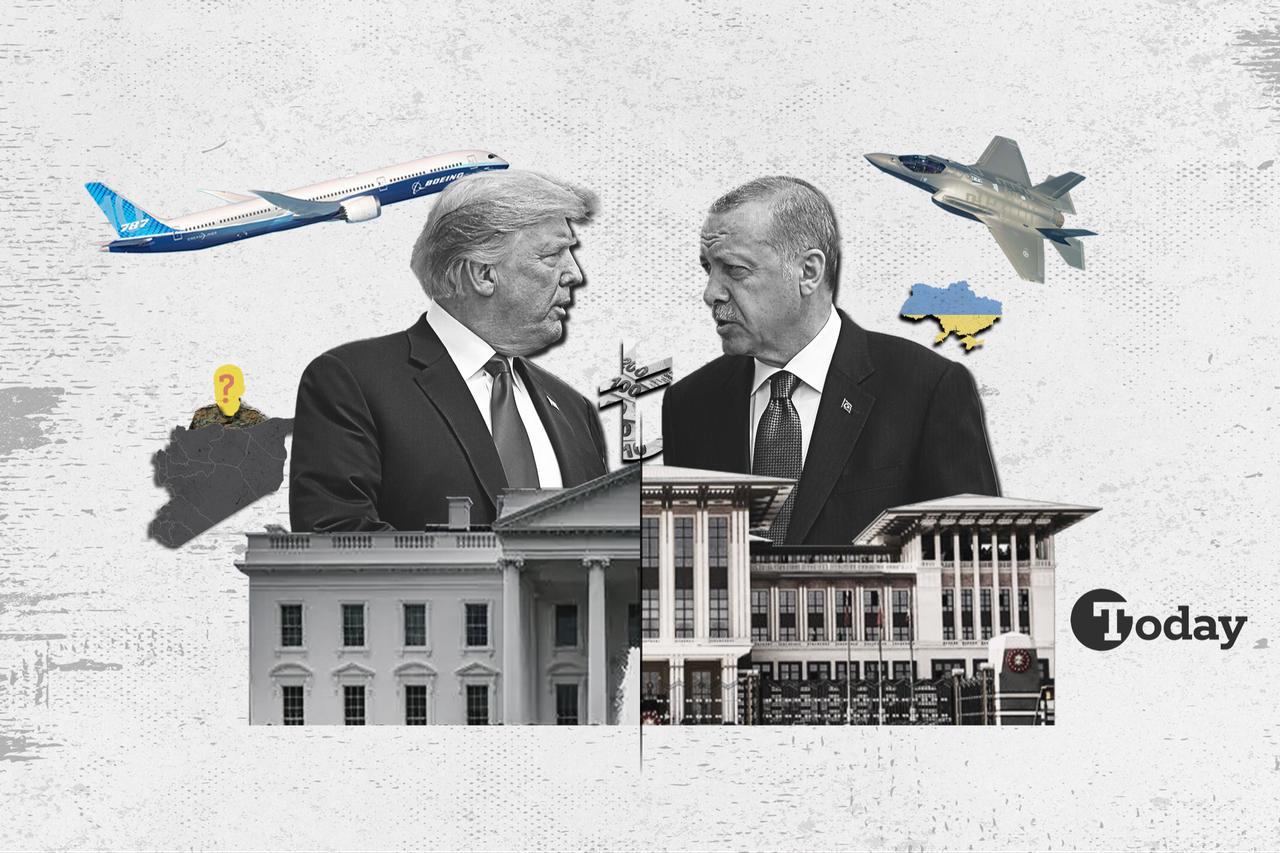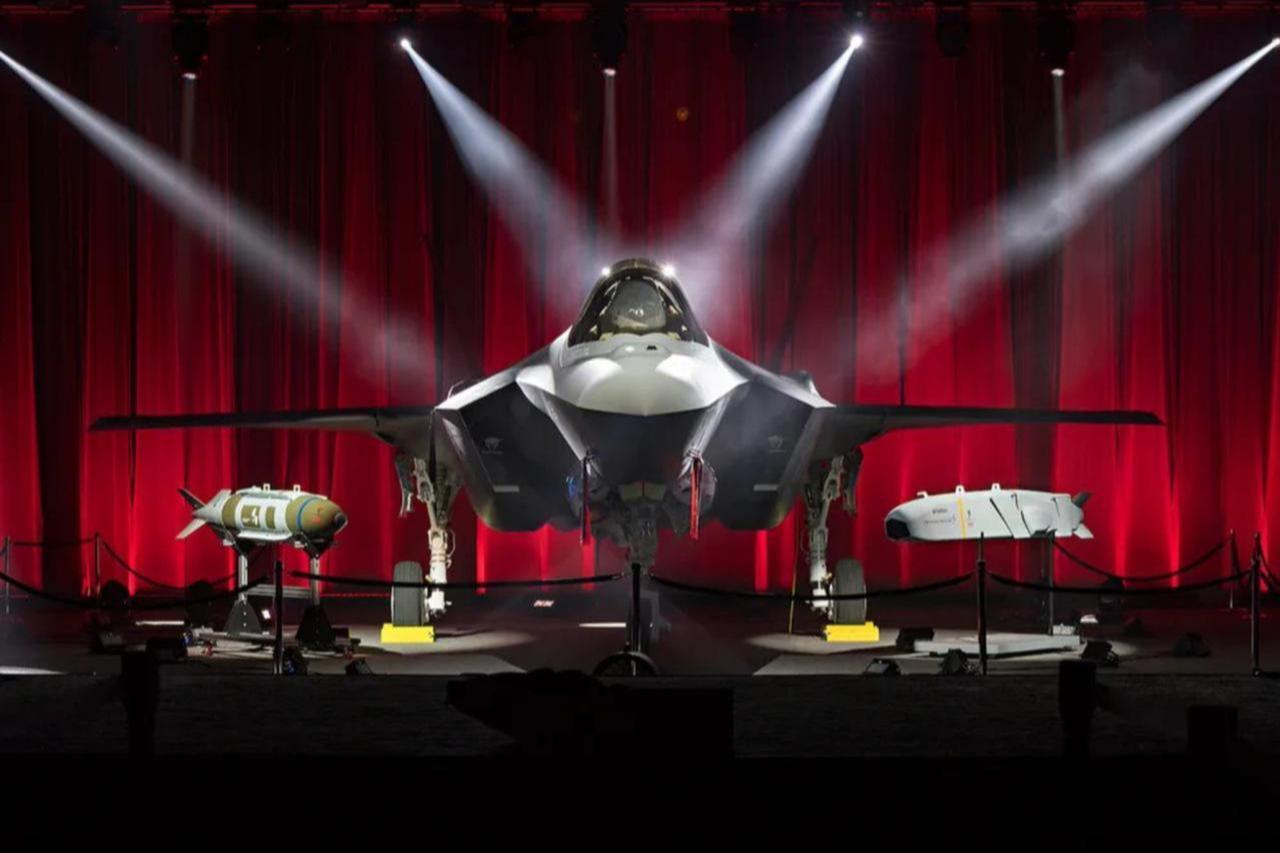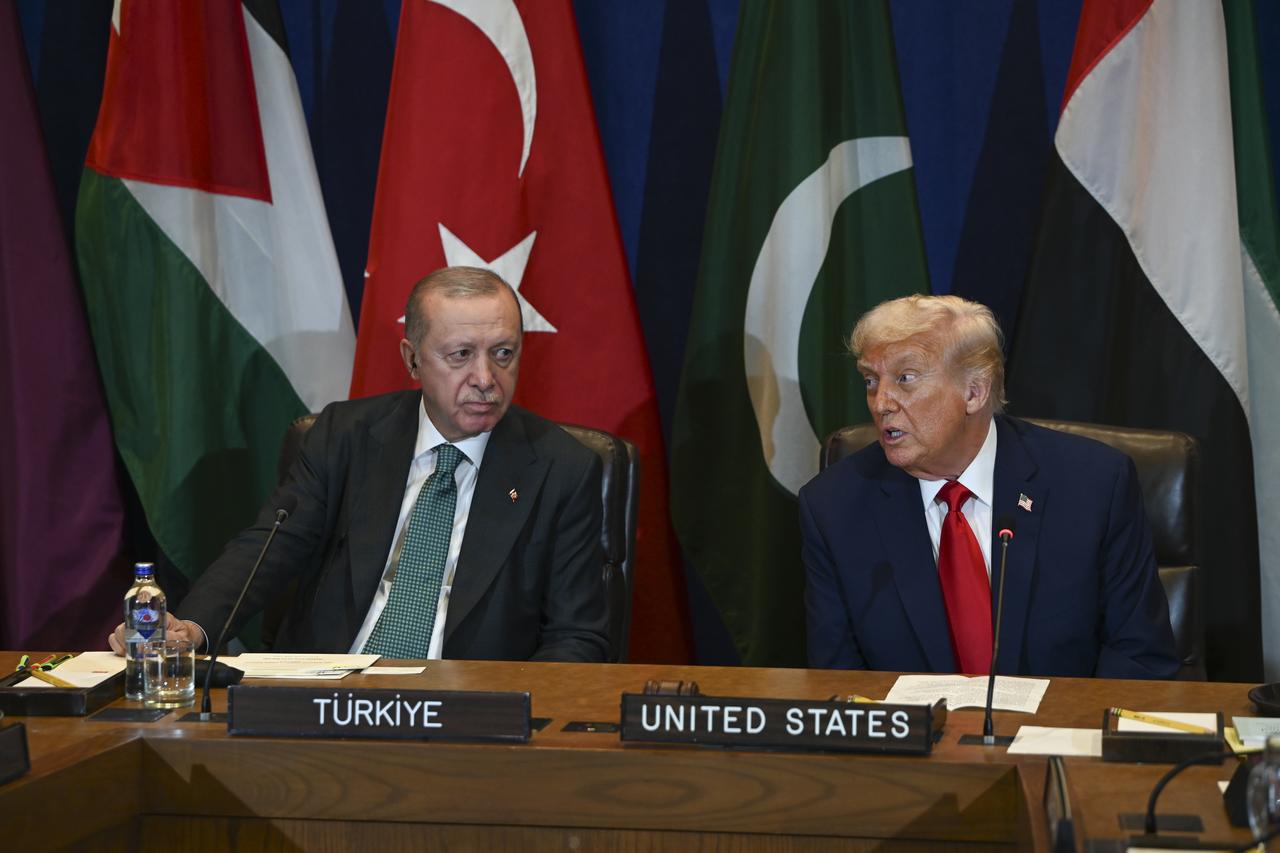
The marble halls of the United Nations this September carry more than the usual hum of diplomacy. Yet beyond the optics lies a diplomatic agenda packed with unresolved disputes, where each gesture hints at broader strategic calculations.
President Recep Tayyip Erdogan is scheduled to meet U.S. President Donald Trump in Washington on Thursday, and what might appear to be a routine bilateral encounter is, in fact, a pivotal juncture: the convergence of CAATSA sanctions, strategic aircraft deals, industrial ambitions, and congressional oversight.
Türkiye's 2019 purchase of the S-400 missile defense system remains a major sticking point. Blaming Ankara’s F-35 exclusion solely on the S-400 oversimplifies the story and places all the responsibility on Türkiye. While the sanctions followed the purchase, other concerns—including vocal support for Hamas in the face of Gaza genocide also played a role.

Economically, potential Boeing deals and industrial partnerships could bring immediate capital and create jobs. Strategically, returning to F-35 production and its supply chains would restore interoperability with NATO allies and bolster Türkiye’s standing within the alliance. Politically, the road is tougher: many in Congress—especially Republicans—still see the S-400 deal as a serious breach, and any quick waiver or reset risks fierce pushback.
On July 14, Senator James Risch (R–Idaho), a Republican, made it clear during a hearing in Washington that Türkiye would face consequences for its S-400 acquisition. Yet whispers of compromise are growing. According to Bloomberg and Reuters, Turkish negotiators are exploring a layered approach that pairs civil aviation contracts with defense talks. The strategy could deliver immediate economic headlines while leaving CAATSA and F-35 issues unresolved—a cautious path that preserves political cover in Washington.
Observers outline multiple scenarios. One, described by Reuters, is a limited commercial win: Türkiye secures Boeing aircraft and civil industrial deals, but defense access remains deferred—a strategic pause satisfying domestic economic expectations without crossing Congress’s red lines.
Another, more nuanced path is a conditional defense thaw, reliant on a presidential waiver or tailored industry arrangement linking Turkish concessions—technical, legal, or operational—to a gradual restoration of defense cooperation. Such a course demands patient diplomacy and extensive congressional engagement.
The third, most ambitious scenario, is a full reset: an executive push to rapidly normalize defense ties, risking political backlash, critical editorials, and legislative opposition, yet offering Ankara the chance to regain technological and strategic footholds.
Speaking to Türkiye Today, Barin Kayaoglu, a senior analyst who holds a Ph.D., provided insight into the broader implications of the Türkiye–U.S. defense and aviation agenda.
Kayaoglu noted that Türkiye has been one of the United States’ closest allies in recent years and welcomed the potential lifting of CAATSA sanctions. "NATO’s Article Five functions like the principle, ‘If you go to war, I go too,’ which applies in state-to-state relations as well," Kayaoglu explained. Yet Kayaoglu cautioned that the U.S. currently refuses to sell weapons to Türkiye, despite prior assurances.
Kayaoglu also emphasized the European dimension. If sanctions are lifted, countries such as Portugal and Germany could draw closer to Washington, Kayaoglu said, though Germany’s sales agreements remain uncertain. Strained relations with Europe over this issue would be strategically disadvantageous for the U.S. Kayaoglu added that the S-400 acquisition had penalized Türkiye, but the fact that CAATSA sanctions were imposed without Congressional approval raised serious legal questions.
Reflecting on historical context, Kayaoglu recalled that during the Biden administration, Türkiye had been promised F-16s on the condition of Sweden joining NATO. "However, this commitment was never fulfilled," Kayaoglu noted, underscoring Ankara’s prolonged uncertainty regarding its fighter jet modernization program.
"The implications for domestic programs are equally pressing. Once sanctions are removed, the Hurjet project would become critical, with the F-110, F-404, and F-120 engines also essential for the KAAN program. Lifting CAATSA could thus provide Ankara with operational flexibility while sending positive signals to the European Union regarding the Eurofighter program and improving component supply chains," Kayaoglu said.
Kayaoglu also highlighted the aircraft negotiations within Türkiye’s civil aviation sector. Agreements with Boeing promise to stabilize aviation operations and strengthen Türkiye’s position in international supply chains.
"F-16 and F-35 programs remain on the agenda and will be central in the September 25 Erdogan–Trump meeting," Kayaoglu said, adding that the decisive factor remains Congress, which may not necessarily follow the president’s lead. "To be frank, I am not optimistic in these matters; trust in the Americans is limited. CAATSA will leave its mark on the Erdogan–Trump talks."

Associate Professor Oguzhan Bilgin highlighted the recognition of Palestine ahead of the Trump–Erdogan summit, drawing attention to its broader geopolitical significance.
"First, I want to emphasize the issue of recognizing Palestine before the Trump–Erdogan meeting. Some may underestimate the significance of recognition decisions. Certainly, recognizing Palestine does not absolve anyone of past wrongs; this step may not halt ongoing atrocities, yet it represents a significant blow to Zionism. Zionism maintains three main strongholds outside Israel: the U.S., the U.K., and France. Therefore, the recognition decisions of countries such as the U.K., which played a role in Israel’s founding, alongside France and others, constitute critical strikes against both Israel and Zionism," Bilgin said.
This observation aligns with developments from Tuesday, at the United Nations 80th General Assembly, where Türkiye reiterated its call for Palestine to be recognized as a sovereign state. Shortly thereafter, French President Emmanuel Macron also publicly declared France’s recognition of Palestine from the U.N. podium, underscoring the growing international momentum on this issue.
Bilgin continued, "Trump’s brakes on Israel are no longer functioning as before. During Netanyahu’s visit to the U.S., Trump told Netanyahu to ‘be reasonable’ regarding Türkiye, in full view of the world. Yet Israel has largely controlled Trump through channels including the Epstein cases, the Pentagon, CENTCOM, the CIA, and Congress."
Turning to the agenda likely to dominate the Washington summit, Bilgin identified two critical issues: "Beyond the obvious topics, I believe two matters will be decisive: first, Syria and the PKK; second, whether Israel’s actions in Palestine will continue unchecked. Will the PKK lay down arms in Syria, or not? After all, the PKK functions as their proxy."
Addressing defense-related matters, Bilgin added, "Furthermore, I expect F-16 and CAATSA issues to see favorable outcomes from Trump; yet Congress or the broader U.S. institutional framework may block these efforts. The F-35 issue, however, will likely conclude negatively; facing a restrained and pressured Trump, Israel will insist on maintaining its position as the only F-35 operator in the region, and it will ultimately secure that objective."
Whatever emerges from the Oval Office on Thursday will reverberate far beyond the meeting room.
It will ripple through aircraft factories, NATO councils assessing alliance cohesion, and the contested skies of Eurasia. For Ankara, the meeting represents an opportunity to convert constraints into advantages.
For Washington, it is a test of whether legal restrictions, congressional oversight, and alliance commitments can coexist with pragmatic diplomacy.
In the end, the most decisive moments of international negotiation are rarely public; they are forged in whispers, measured in commitments, and recorded in the ripple effects that persist long after the cameras have left.